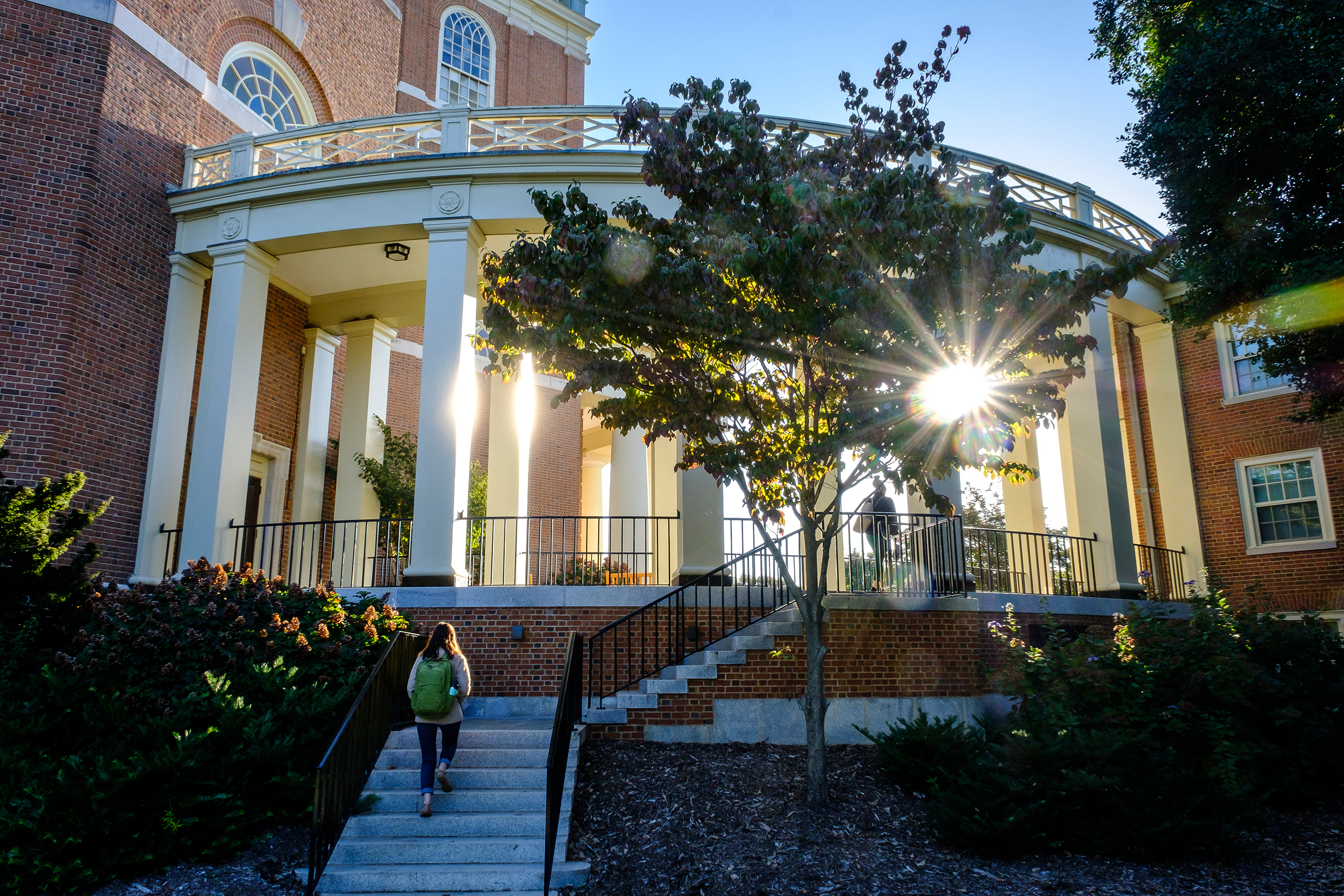Keep holiday cheer all year
After weeks of humming holiday songs, decorating the house with cheer and planning for a joyous celebration, the holiday season inevitably will come to an end. The tunes will change, the decorations will come down and the leftovers will get stale. Even the most cheerful person can find it hard to sustain holiday happiness after the big event has come and gone.
 Wake Forest University Assistant Professor of Psychology Christian Waugh studies human emotions and why some people are more resilient in maintaining positive emotions than others. “A large part of happiness is anticipation,” Waugh explains. “Thanksgiving, Christmas, Hanukah, New Year’s Eve and other holidays offer punctuated moments of joy we look forward to for weeks. While the celebration itself may be short-lived, the anticipation of the fun and excitement to come extends the feelings of positivity.”
Wake Forest University Assistant Professor of Psychology Christian Waugh studies human emotions and why some people are more resilient in maintaining positive emotions than others. “A large part of happiness is anticipation,” Waugh explains. “Thanksgiving, Christmas, Hanukah, New Year’s Eve and other holidays offer punctuated moments of joy we look forward to for weeks. While the celebration itself may be short-lived, the anticipation of the fun and excitement to come extends the feelings of positivity.”
Waugh suggests the retail market provides an example of this principle in action.
 Sheri Bridges, an associate professor of business at Wake Forest University and an expert in marketing and consumer behavior, points out that retailers have long been at the forefront of anticipation marketing. “The faltering economy has prompted retailers to stimulate the holiday spirit earlier than usual” says Bridges. “Costco put out its Christmas decoration merchandise before Labor Day, while Home Depot, JCPenney and Walmart waited until later in September to begin stocking shelves. Gift catalogs, featured sales and in-store carols appeal to early shoppers, whom retailers hope will get in the holiday mood earlier and spend more as a result.”
Sheri Bridges, an associate professor of business at Wake Forest University and an expert in marketing and consumer behavior, points out that retailers have long been at the forefront of anticipation marketing. “The faltering economy has prompted retailers to stimulate the holiday spirit earlier than usual” says Bridges. “Costco put out its Christmas decoration merchandise before Labor Day, while Home Depot, JCPenney and Walmart waited until later in September to begin stocking shelves. Gift catalogs, featured sales and in-store carols appeal to early shoppers, whom retailers hope will get in the holiday mood earlier and spend more as a result.”
After the spending spree, holiday parties and fun times with family and friends are over, it can be easy to slide into a funk. Waugh’s research suggests three tips to keep up the excitement and joy of the holidays all year long.
- Plan Ahead. Deliberately plan a combination of big events and small celebrations throughout the year. Everyone gets excited for big vacations, but don’t forget the joy of a simple Friday night with friends, or watching a baseball game on TV. Also take time to plan for personal milestones and accomplishments. “Scheduling ahead and preparing appropriately is important,” offers Waugh. “Advance planning both helps build anticipation and reduces the likelihood of disappointment.” He warns, however, against getting too wrapped up in the idea of creating the perfect experience.
- Get Excited. Let yourself look forward to the fun to come and feel good about a positive experience just around the corner. Waugh says the stress that comes from planning an event is to be expected but should not overshadow the joy of anticipation. “Research shows that resilient people are marked by the ability to recognize that stress and excitement can, and likely will, occur at the same time.”
- Savor the Moment. Switch out of planning mode long enough to appreciate the experience you have been anticipating. Immerse yourself in the moment. “I can’t stress enough the importance of actually enjoying the experience as it happens. After spending so much time and energy preparing for something, it can be too easy to the let the moment pass and later feel let down that you were too exhausted or distracted to enjoy it,” Waugh says. “Take a deep breath and switch your focus away from the work that led up to the celebration and forget about what comes next. Have fun. Then start looking forward to playing with that new toy or using your gift card on something exciting.”
For college students, Waugh notes that returning to campus after a holiday break can be particularly jarring because they have the added emotions of leaving behind family and longtime friends. He points out the opportunities the spring semester presents to practice the tips above. “Let yourself get excited for events like spring break, graduation, applying to grad school and finding a job or internship,” he tells students. “But don’t forget to plan.”
“There’s a time and a place for everything,” Waugh says. “Planning positive experiences is great, but don’t do it at the expense of planning for those stressful moments like tests, research papers and class projects. Balance is key.”



